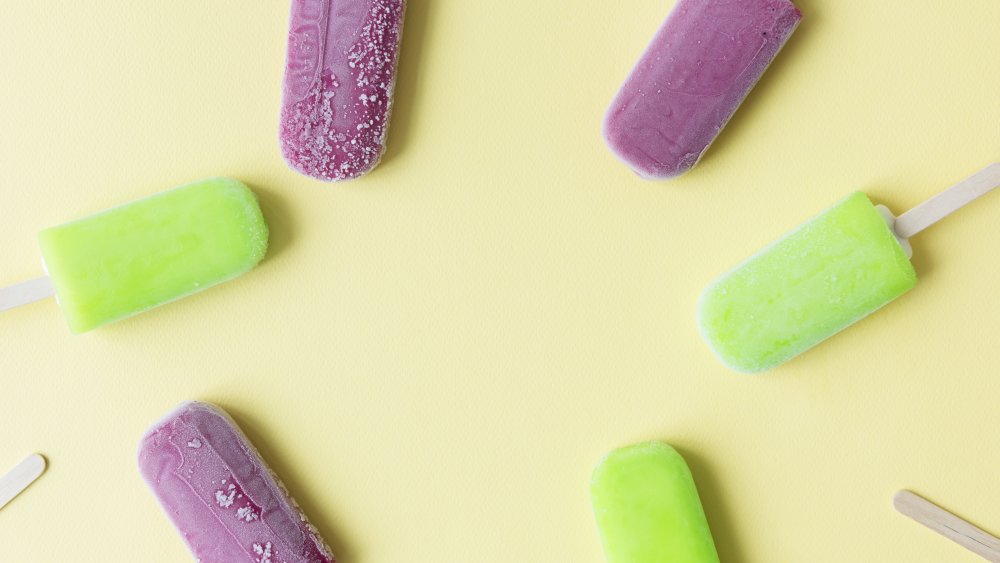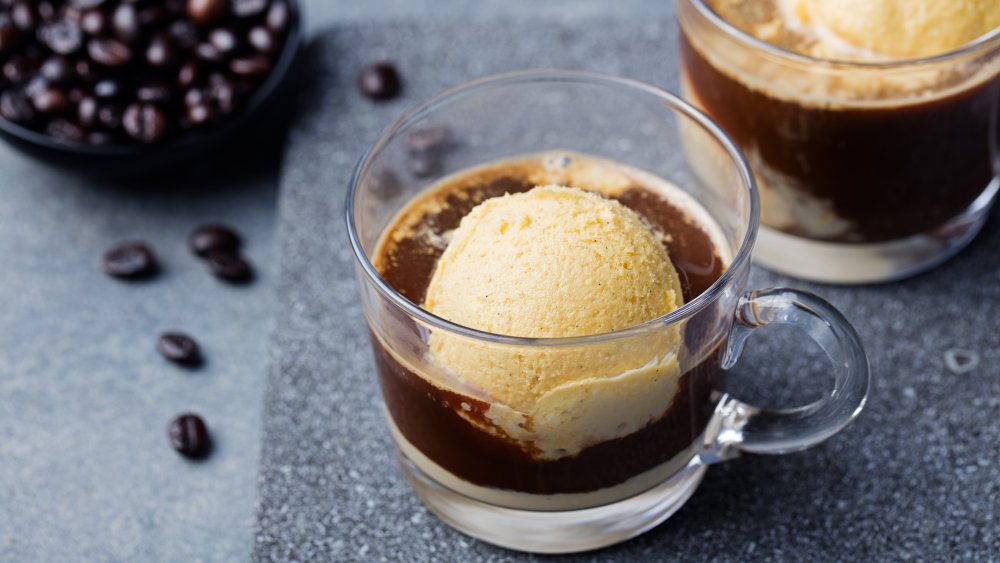When You Get Brain Freeze, Here's What's Really Happening
There are certain types of pain for which you're never going to get any real sympathy, since they're regarded as being almost funny despite the fact that they really, really hurt — and yes, we've all been there. Amongst these types of minor-except-in-the-moment ailments are stubbed toes, banged-up funny bones, and the dreaded brain freeze, aka ice cream headache or frozen eye syndrome. This last-named malady is particularly regrettable in that yes, in effect you do bring it on yourself through your own greed, but come on, what are you supposed to do, never again enjoy a delicious ice cream cone or a yummy slushy? As if.
While it probably won't help to alleviate your pain next time you're in the grips of that particular agony, there is actually a good reason behind your body's sending out those intense pain signals every time you eat or drink something too cold, too quickly.
What causes brain freeze
According to science (and Insider), the official name for this phenomenon is sphenopalatine ganglioneuralgia, and it happens when the internal carotid artery located right behind the roof of your mouth gets too cold. That artery is carrying blood directly to your brain, and your brain doesn't care for ice-cold blood, thank you very much. It signals its objection by setting off an alarm of the kind you simply can't ignore — severe pain, the one thing that will get you to put down that Slurpee for long enough to let the brain blood return to its normal temperature.
So what would happen if you somehow did manage to ignore the pain and keep on eating, like you were participating in some kind of hideous ice-eating food challenge? According to Greg McLauchlin, M.D., the Assistant Professor of Neurology at Baylor College of Medicine, nothing good would come of such a decision. Your blood vessels would constrict, he explained, and said, "As a last resort, you pass out and drop the ice cream cone." Ouch. Don't do that. Hurting yourself is bad enough, but wasting food would be a real shame.
How to stop a brain freeze
The good news is, brain freeze usually only lasts about 30 seconds, but those 30 seconds can feel like an eternity in a frozen hell while they last. It is possible, though, according to McLaughlin, for that pain to last for several minutes. While the best cure, of course, is prevention (which can only be done by eating your ice-cold treat veeerrryyy sloowwllyyy), when you're locked in that brain-freezing moment, all you want is something to take the pain away, fast.
According to Food Network, the best way to stop a brain freeze cold is to press your tongue against the roof of your mouth (behind which is lurking that irked carotid artery, you may recall). You could also try to sip on a warm drink, should you have one at hand (affogato, anyone?) or, in a pinch, just cover your mouth and nose with your hands and breathe into them to get a little warm air back into your palate. Then return to your now slightly melted treat with all the caution due something so delicious, yet treacherous. Yes, you most likely will experience brain freeze again numerous times throughout your life, but just remember, nothing good ever comes without a little suffering.



